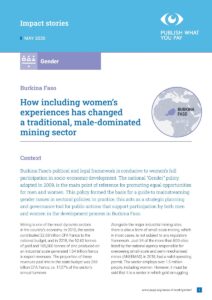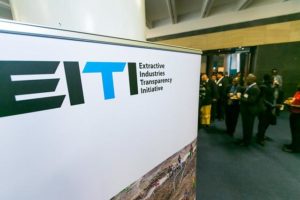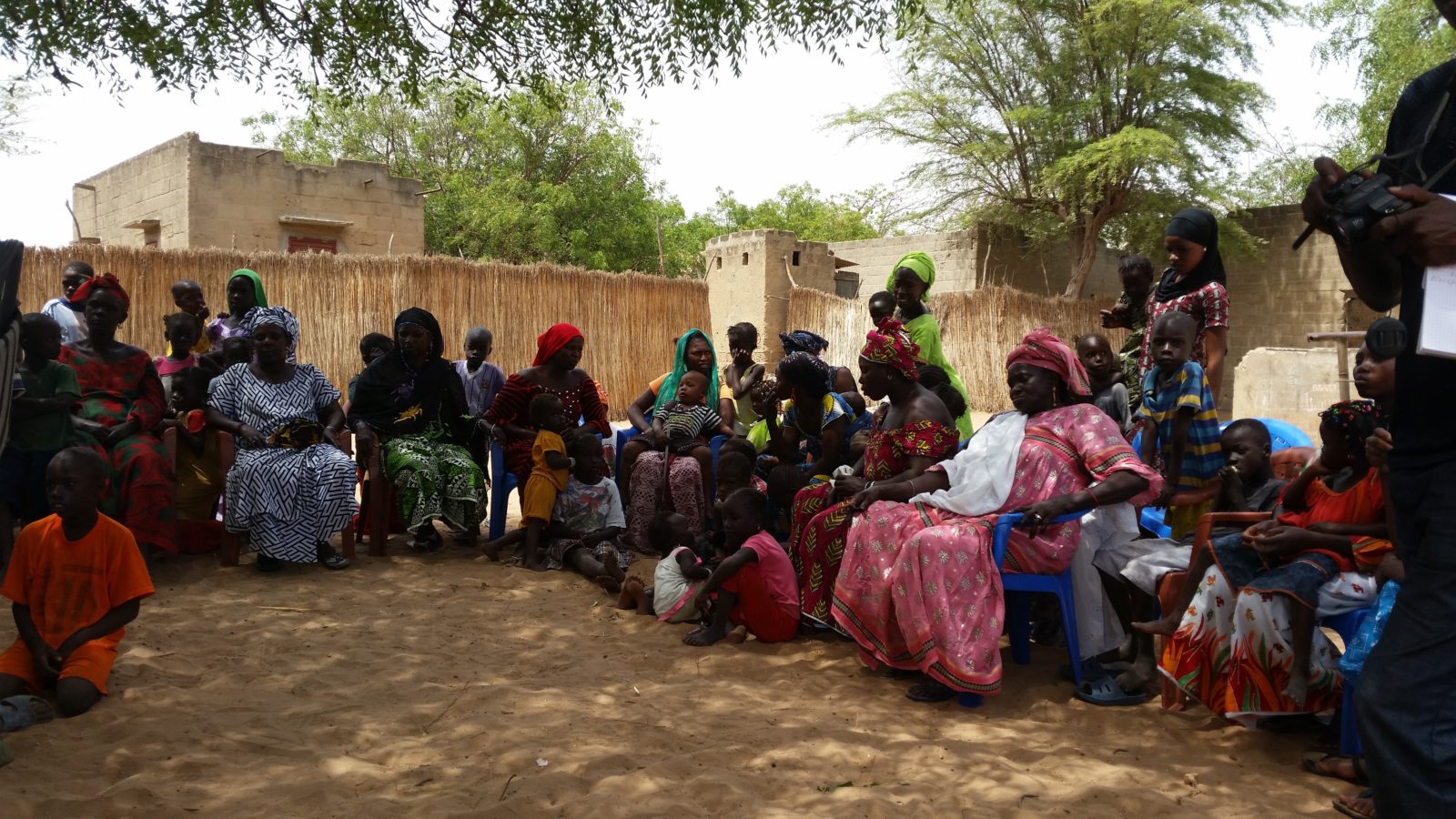With support from the William and Flora Hewlett Foundation and the Finnish Ministry of Foreign Affairs, PWYP coalitions are continuing their work to help bring decisions by women, that benefit women, to extractive sector governance
As the global coronavirus crisis continues to cause devastating upheaval, an interesting trend has been observed: that of better outcomes in countries with female leadership. While numerous factors are involved in such outcomes, the idea that women are not as able or equipped as men to lead – especially in times of crisis – is being clearly disproved in countries from Finland and Germany to Taiwan and New Zealand.
These examples of successful female leadership in complex contexts add impetus to PWYP’s ongoing work to promote gender equality and women’s rights in natural resource governance. By recognising the critical role that women can and should play in extractive governance, and raising awareness of the many barriers that continue to stand in their way, PWYP seeks to advance opportunities for women’s leadership in a sector where they often gain least (for example, through employment opportunities) and bear the greatest cost of negative social and environmental impacts.
Towards feminist natural resource governance
 A core aspect of PWYP’s gender programming for 2020 to 2022 builds on the findings of a two-year pilot begun in 2018 to promote gender responsive implementation of the Extractive Industries Transparency Initiative (EITI), a global multi-stakeholder endeavour to improve natural resource governance in more than 50 countries. The EITI is a voluntary initiative to put information into the public domain on a regular basis about aspects of this complex and traditionally highly opaque sector. EITI disclosures include information on who is being given the right to mine or drill, the terms of those contracts, how much money companies pay and governments receive for natural resources, and what other impacts – such as environmental and social effects – are being monitored and managed.
A core aspect of PWYP’s gender programming for 2020 to 2022 builds on the findings of a two-year pilot begun in 2018 to promote gender responsive implementation of the Extractive Industries Transparency Initiative (EITI), a global multi-stakeholder endeavour to improve natural resource governance in more than 50 countries. The EITI is a voluntary initiative to put information into the public domain on a regular basis about aspects of this complex and traditionally highly opaque sector. EITI disclosures include information on who is being given the right to mine or drill, the terms of those contracts, how much money companies pay and governments receive for natural resources, and what other impacts – such as environmental and social effects – are being monitored and managed.
PWYP’s pilot project involved participatory research with PWYP members in Guinea (home to the world’s largest open-cast bauxite mine), Burkina Faso (Africa’s fourth largest gold producer) and Senegal (a leading producer of phosphates), to uncover barriers to and opportunities for women’s inclusion in natural resource governance. The pilot also assessed the understanding of those barriers and opportunities among key stakeholders including government, industry and civil society representatives of national EITI multi-stakeholder groups (MSGs), who oversee implementation of the EITI; and within the PWYP movement itself. Gender assessments of PWYP coalitions in the three pilot countries, as well as Ghana, Nigeria and Togo, confirmed the weak representation of women’s interests and organisations within the coalitions and their programming, as well as in the work plans of national EITI multi-stakeholder groups and the low proportion of women sitting on the MSGs themselves.
Strengthening women’s participation in the EITI
 In June 2019, for the first time in its 17-year history, the EITI International Board adopted a version of the EITI Standard which refers to women and gender in specific and important ways. The Standard now encourages consideration of gender balance among multi-stakeholder group members. It requires extractive companies to disclose the number of men and women employed in their organisations and in what roles, and requires multi-stakeholder groups to ensure that they consider how to mitigate challenges in making EITI data accessible, including in relation to gendered social or economic factors. For example, if a woman is unable to read or pay a bus fare to attend a meeting, the multi-stakeholder group must find other ways to make EITI information accessible to her. The 2019 Standard also draws a link between the extent to which the EITI can be said to have impact and the extent to which EITI implementation has taken gender-related considerations into account.
In June 2019, for the first time in its 17-year history, the EITI International Board adopted a version of the EITI Standard which refers to women and gender in specific and important ways. The Standard now encourages consideration of gender balance among multi-stakeholder group members. It requires extractive companies to disclose the number of men and women employed in their organisations and in what roles, and requires multi-stakeholder groups to ensure that they consider how to mitigate challenges in making EITI data accessible, including in relation to gendered social or economic factors. For example, if a woman is unable to read or pay a bus fare to attend a meeting, the multi-stakeholder group must find other ways to make EITI information accessible to her. The 2019 Standard also draws a link between the extent to which the EITI can be said to have impact and the extent to which EITI implementation has taken gender-related considerations into account.
In the coming two years, PWYP coalitions in Burkina Faso, Ghana, Guinea, Nigeria, Senegal, Kyrgyzstan and Ukraine will use the EITI Secretariat’s guidance on the gender provisions to influence EITI implementation in their national contexts. Through case studies, interviews and surveys, they will document and communicate the impact of those provisions, such as the production of gender-disaggregated data on companies’ social expenditures.
As we understand where and how the EITI can enable meaningful impact for those most impacted by extraction, we hope to answer the following questions:
- How can disclosure of specific data through the EITI be used to transform women’s experience of the extractive sector?
- What shared issues can the women’s rights movement and the extractives governance movement jointly mobilise around for greater impact across the world?
- What provisions should be included in other national or global policies to address gender inequalities in the extractive sector?
- Does the global pandemic present opportunities to raise awareness about women’s rights and gender equality in natural resource governance, and to secure more meaningful commitments from governments or companies on these issues?
In Uganda, Tanzania and Mozambique, PWYP coalitions are undertaking projects to explore opportunities for increasing women’s effective participation and voice in decision making processes about whether and how extractive revenues are allocated in sub-national budgets. All three countries are signatories of the EITI. This research is being conducted in the context of a larger project funded by the Finnish Ministry of Foreign Affairs to advance equitable and transparent fiscal policies to manage wealth generated by the exploitation of mineral, oil and gas resources.
A people-centred agenda for transformative extractive sector governance
PWYP’s Vision 2025 strategy sets out a people-centred agenda for the extractive sector – one in which we are informed, influential, heard and connected. By designing this work with women from the start, we are putting our strategy into action. The 2019 EITI Standard represents an opportunity for all activists who recognise that sustainable, equitable and responsive development outcomes can only be achieved when women’s experiences are heard, and when their contributions inform collective decision-making.
As economic needs drive commitments to a low-carbon economy, many resource-rich countries face an uncertain future, whether they are established or new fossil-fuel producers, or have deposits of the minerals needed to spur the transition. Whatever their situation, PWYP believes that they will be better placed to face these changes – and the complex decisions they require – if the women who have a stake in that future are actively informing how it will unfold.











